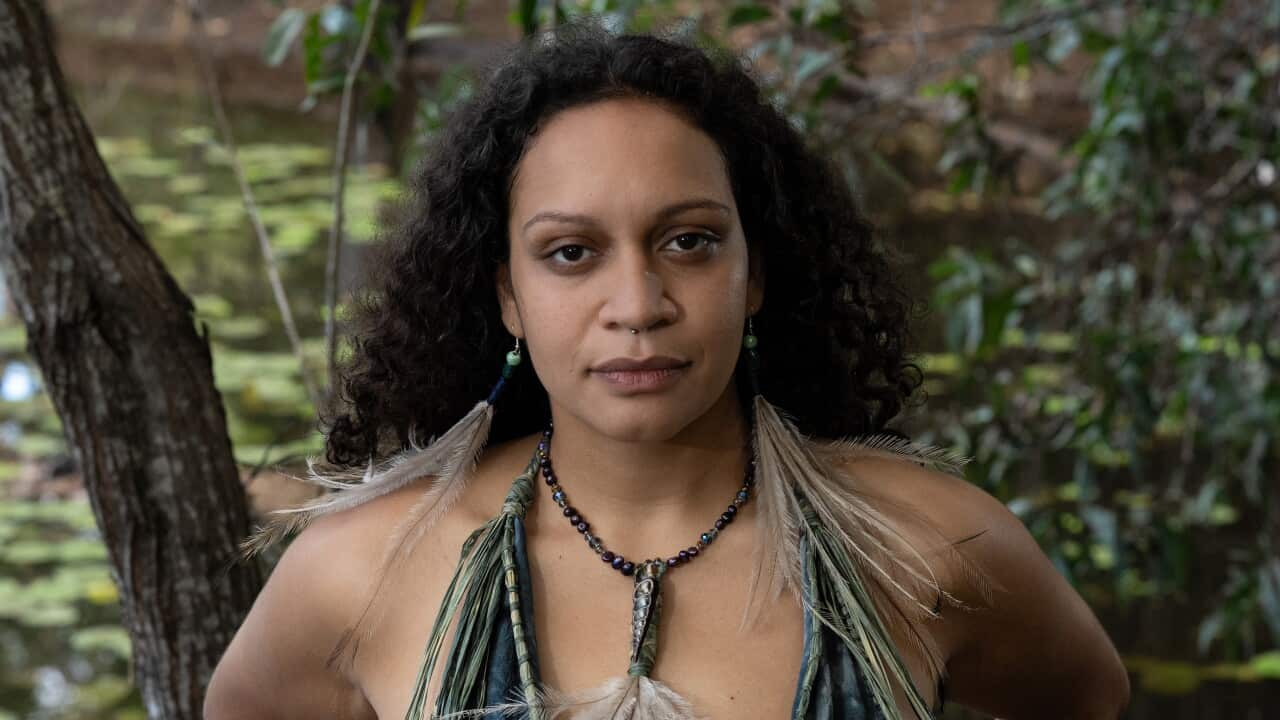Ms Johnson, a Wirdi woman of the Birri Gubba nation of central Queensland, has been recognised with the Goldman environmental award, a major international prize for grassroots activism which was announced in a ceremony in San Francisco on 30 April.
She first began publicly speaking against Adani’s (now Bravus in Australia) Carmichael coal mine on her people’s Country after her Elders tapped her on the shoulder when she was just a teenager.

Murrawah Johnson and Adrian Burragubba fought against Adani’s Carmichael coal mine. Source: AAP / Darren England
The Wangan and Jagalingou battle against Adani saw Ms Johnson, her uncle Adrian Burragubba and other Traditional Owners pitted against the powerful multinational company started by Indian billionaire Gautam Adani and at odds with both the Queensland and federal governments.
Between 2012 and March 2016, Wangan and Jagalingou people voted against signing an Indigenous land use agreement with Adani at three separate meetings.
In 2017, the federal coalition government, supported by Labor, amended the Native Title Act so a majority of named claimants could sign an Indigenous land use agreement, whereas previously the act had required agreement to be unanimous – which in the Wangan and Jagalingou people’s (also called Clermont-Belyando Area Native Title Claim Group) it demonstrably had not been.
“Against the powers that be, the state apparatus, we’re still fighting the doctrine of Terra Nullius (land belonging to no-one) and so it’s hard to not be heartbroken, especially running case after case.”

The court ruled Waratah Coal’s Galilee project would limit the cultural rights of First Nations people. Source: AAP / Brian Cassey
She took the learnings from the losses and the knowledge passed down by her Elders and in 2020 led Youth Verdict’s challenge to the proposed Galilee Coal Project in the Queensland Land Court on human rights grounds, fighting billionaire Clive Palmer’s company Waratah Coal.
“I urge you all to be open and willing to be led by the ancient knowledge and teachings of First Nations peoples and cultures which are needed to lead solutions to the most modern problems of today, now more than ever before.”
